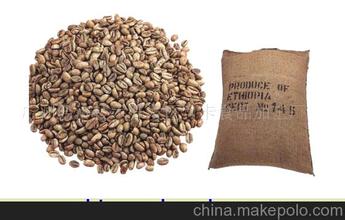Introduction to the characteristics of flavor and taste of Alishan Mazu coffee
Introduction to the characteristics of flavor and taste of Alishan Mazu coffee
The varieties of Alishan coffee are grown in Arabica. This kind of coffee grows in a harsh environment. Taiwan is located in the subtropics. The temperature is higher all the year round, and coffee trees like shade. If coffee trees are planted alone, they may be killed by the strong sun. The Ali Mountains are covered with forests and there are many betel nut trees, so most of his coffee trees are planted in the betel nut garden, because the betel nut trees grow fast and have luxuriant branches and leaves. It can not only absorb the sun but also get shade early, which is very suitable for the growth of coffee. In the coffee garden where Ali Mountain went, the coffee trees are all hidden in the shade of the betel nut trees. Coffee trees are also very strong, and the coffee produced is relatively good. Coffee trees are planted and coffee plants emit different fragrances and tastes according to where they are planted. They are still coffee varieties with great personality. Alishan Coffee in Taiwan is very popular in recent years. The history of Taiwan coffee can be traced back to 1624. In the early days, the Dutch introduced coffee. However, it is limited to drinking among the Dutch, so it can not be widely promoted. During the Japanese occupation in 1931, when the Japanese invaders made great efforts to mobilize farmers to grow coffee for their own needs and for the sake of Taiwan coffee, many farmers lost their fertile fields for growing rice. Although the coffee grown has a bumper harvest year after year, but the coffee has no profit and has lost its food, many coffee farmers have not been able to feed themselves by working all their lives. Mr. Kimura grows and cultivates in large quantities in the areas of Alishan, Nantou and Yunlin in northern Tainan.
In 1941 (the 16th year of Rizhaohe), most of the raw beans were shipped back to Japan. The coffee planting area in Taiwan has reached 75 hectares, and in its heyday it was known as "the largest coffee factory in the far East". In 1945 (Rizhaohe 20 years), the area of coffee cultivation in Taiwan expanded to 113 hectares after the war. After the surrender of Japan, Taiwan was restored, and the national government strongly advocated the reclamation of fertile land and the cultivation of cash crops. The aborigines of Alishan even wanted to use the countryside or mountains to grow some food to feed their stomachs. No one wanted to grow coffee that tasted as bitter as life, so Taiwan coffee gradually declined and was gradually forgotten by people. In 2000 (1989), it was not until it was publicized by the Taiwan government and the strong support of the Chiayi county government that local farmers began to grow coffee again, and Taiwan coffee gradually revived and developed well in recent years, and was loved by more and more people.
The Taiwan Coffee Association was formally established in 2002 (October 1992). Its purpose is to strengthen the cooperation and exchanges between Taiwan's coffee industry and the rest of the world, to enhance the cooperation and exchanges between Taiwan's coffee industry and coffee lovers, and to provide professional knowledge and information about coffee. create Taiwan's unique coffee culture and enhance its international status.

Important Notice :
前街咖啡 FrontStreet Coffee has moved to new addredd:
FrontStreet Coffee Address: 315,Donghua East Road,GuangZhou
Tel:020 38364473
- Prev

The process of making coffee from coffee tree to squeeze-coffee tree growth process
The process of making coffee from coffee tree to squeeze-coffee tree growth process this method of making coffee in a piston coffee pot is currently one of the easiest and most popular ways to make fresh coffee. Put the ground coarse-grained coffee powder into a warm coffee pot, pour in the boiling water and stir well. after soaking for four to five minutes, press the piston with a filter to the bottom of the pot to make the coffee powder and soak.
- Next

How to adjust the scale of the Italian bean grinder-how to adjust the thickness of the coffee grinder
How to adjust the scale of the Italian bean grinder-how to adjust the coffee grinder for different brands, the thickness of the powder from the same scale identified by each brand is different, and can only be adjusted from your brewing method. At the same cooking temperature, the powder is thicker, the extraction time can be longer, the powder is finer, and the extraction time can be shorter. Basically, regardless of breed
Related
- What brand of black coffee is the most authentic and delicious? what are the characteristics of the flavor of the authentic Rose Summer Black Coffee?
- Introduction to the principle and characteristics of the correct use of mocha pot A detailed course of mocha pot brewing coffee is described in five steps.
- Which is better, decaf or regular coffee? how is decaf made?
- How much is a bag of four cat coffee?
- How about four Cat Coffee or Nestle Coffee? why is it a cheap scam?
- Which is better, Yunnan four Cats Coffee or Nestle Coffee? How about cat coffee? is it a fake scam? why is it so cheap?
- How about Cat Coffee? what grade is a hoax? which instant coffee tastes better, four Cat Coffee, Nestle Coffee or G7 coffee?
- Process flow chart of coffee making-Starbucks coffee making process what coffee tastes good at Starbucks
- The top ten best coffee beans in the world Rose summer coffee or Tanzanian coffee tastes good
- Yunnan four cat coffee is good to drink?_four cat coffee is a big brand? four cat blue mountain coffee is fake?

